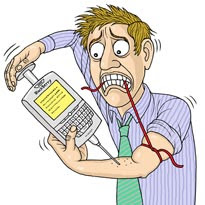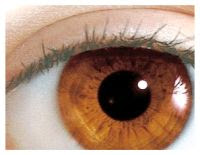
(skip to the bottom if you are already knowledgeable about stem cell research)
A few weeks ago a few friends and I had a contentious debate about progress of stem cell research and the actual use of stem cells. Without solid knowledge of the subject our debate was reduced to conjecture, and assumption. This weekend I did some research to find the bottom line on stem cell research.
Stem cells are specific cells found in the VERY early stages of development of all organisms. These cells have not yet specialized so they can become anything in the organism. For example, a stem cell can become a skin cell or a nerve cell later on in development. In fact, a stem cell is what eventually multiplies and multiplies until you have a whole organism (e.g. a human). So stem cells are what is used for cloning.
When a sperm and egg fuse you have your first stem cell. This cell then divides, and then those two cells divide, etc. taking us through the stages of embryonic development. As this process continues the stem cells change into specialized cells that make all the organs and tissues of an organism. These specialized cells cannot be used for anything else other than their specialized usage (not exactly true but good enough for our purposes). That is what makes stem cells so valuable. They can be anything. They can even be used to create a whole new organism (i.e. cloning). This means that someone who has a damaged organ that must be removed can use stem cells to create a new organ to replace it. Or someone who is paralyzed because his/her spinal cord was cut can use stem cells to re-attach their spinal cord and walk again. The applications are endless and there has actually been a case where a blind man's vision was restored using stem cells.
So up until this point I think we have covered what is more or less basic knowledge that most people have about the subject, but here is what most people don't know is: What is the source of stem cells?
Answer: A fetus. This is what creates all the debate about stem cell research and what has made it illegal in the U.S. It's the idea that using fetuses is morally questionable. But what people don't know is that the only stem cells that can be used for research are those of an embryo that has only reached UP TO 16 CELLS in size. At this point the fetus is still microscopic! This also means that stem cells can be created in a lab using the eggs and sperm of those who donate or sell them. They do not need to be gathered through abortions.
Also, in case you didn't know, people sell there sperm and eggs all the time. Stem cell research would not cause people to do this for the first time.
 People are always counting their calories and fighting themselves tooth and nail to avoid that one indulgence only to see little benefit as a result. Why? Much of reason is that their metabolisms adjust making their slightly-adjusted diets have little effect. Little do people know that they can actually get in better shape by eating more. By doing all of the following advice in this article (listed below) and sustaining these changes you can actually change your metabolism forever. It takes time and hard work but I never thought that working out hard and eating a lot was that unpleasant. Not to mention that there are countless other benefits to you physical and mental health that will come as a result of these changes.
People are always counting their calories and fighting themselves tooth and nail to avoid that one indulgence only to see little benefit as a result. Why? Much of reason is that their metabolisms adjust making their slightly-adjusted diets have little effect. Little do people know that they can actually get in better shape by eating more. By doing all of the following advice in this article (listed below) and sustaining these changes you can actually change your metabolism forever. It takes time and hard work but I never thought that working out hard and eating a lot was that unpleasant. Not to mention that there are countless other benefits to you physical and mental health that will come as a result of these changes.
















